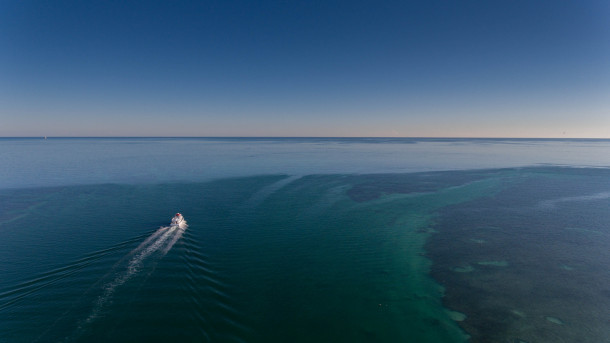Press release
Tsunami resilience: UNESCO will train 100% of at-risk coastal communities by 2030

Download our press kit to learn more about our work.

UNESCO leads the UN Decade of Ocean Science for Sustainable Development from 2021 to 2030. In this context, several international summits are organized this year to amplify the international mobilisation for the ocean, the most important of which is the UN Ocean Conference, from 27 June to 1 July, in Lisbon, Portugal.
At this conference, UNESCO’s Director General will announce an ambitious new commitment: the global deployment of the "Tsunami ready" program, which will result in the training of all at-risk coastal communities in the event of a tsunami by 2030.

To become “Tsunami Ready” a community must develop a tsunami risk reduction plan, designate and map tsunami hazard zones, develop outreach and public education materials, create public-friendly tsunami evacuation maps, and publicly display tsunami information.
Forty pilot communities successfully trained
Already piloted in forty communities in 21 countries, across the Caribbean, Pacific and Indian Ocean regions, the Tsunami Ready Programme will be extended globally to thousands more vulnerable coastal communities. The programme sets out twelve indicators covering all steps, from hazard assessment and evaluation to preparedness and response, adapted to local needs.
Key partners have already come forward to support UNESCO in this commitment, including the United Nations International Strategy for Disaster Reduction (UNDRR) and the European Union, as have key donor countries such as Australia, Japan, Norway and the United States.
A threat in all regions of the world
Tsunamis occur relatively infrequently, but more often than is commonly thought. UNESCO’s Pacific Tsunami Warning Centre hosted by the USA has alone responded to 125 tsunami events, averaging 7 per year.
Though the majority of tsunamis impact coastal populations in the Pacific and Indian Ocean regions, all ocean regions are at risk. Statistics show that the probability of a tsunami wave exceeding 1 metre in the Mediterranean in the next 30 years is close to 100%. 78% of Tsunamis are driven by seismic activity, 10% by volcanic activity and landslides, and 2% by meteorological activity.
Beyond the UN Ocean Decade 2021-2030, UNESCO’s new Tsunami Ready goal aligns with internationally-agreed objectives, including the United Nations 2030 Agenda for Sustainable Development and the Sendai Framework for Disaster Risk Reduction 2015-2030.
Two other highlights at the Lisbon UN Conference
1. Audrey Azoulay will designate Maya Gabeira, the Brazilian surfer as a UNESCO Goodwill Ambassador. Maya Gabeira will be “Champion on Youth and Oceans”. She will host youth summits on ocean sustainability, and act as a spokesperson for Gen Ocean, UNESCO’s new campaign to build awareness and spur action on the oceans. The ceremony will take place at 14.00 on Monday 27 June, in the SDG Media Zone at the Altice Arena, the main venue of the conference.
2. UNESCO’s Director-General will co-host the first high level meeting of the Ocean Decade Alliance, a network of heads of state, CEOs and major philanthropists formed to mobilize support for the decade through fundraising, networking and influence.
- Download UNESCO's Ocean Press Kit.
- Download free-to-use video and photos of underwater volcanoes in the Aeolian Islands. Credit: UNESCO-1 Ocean
Press contact: Clare O’Hagan, +33 1 45 68 17 29

